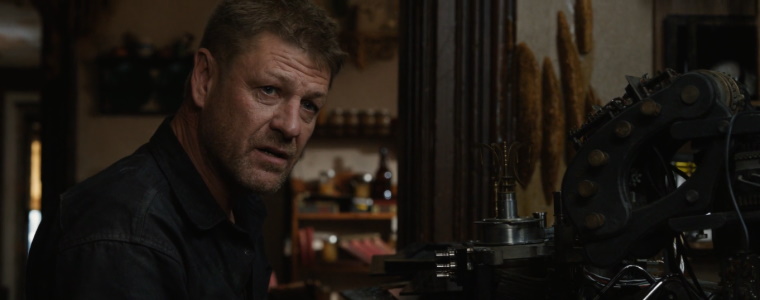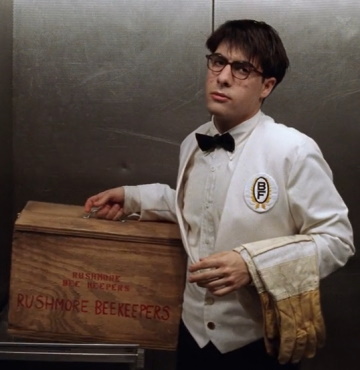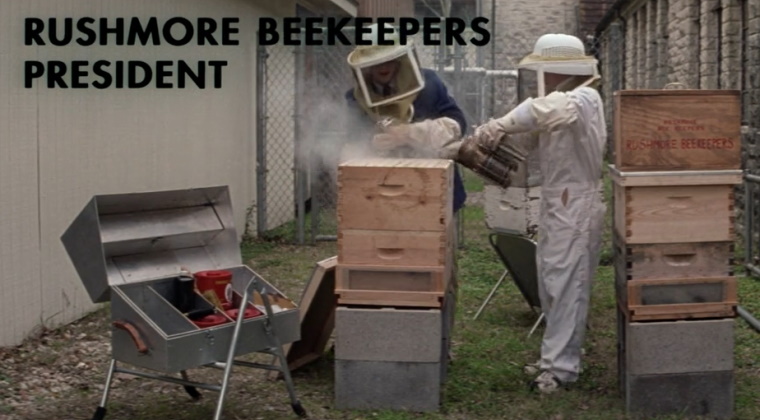Beekeeper Review: Stinger Apini

Stinger Apini, played by Sean Bean, is a character from the film Jupiter Ascending. Without getting into the macro-level details of the movie’s sci-fi setting, I can say this much about Stinger: he’s a genetically-engineered space cop who has been demoted and posted on Earth where he lives with his daughter and keeps bees. And it does seem that he’s good at the beekeeping, a trait that may well bred into him at a genetic level. His farm not only has multiple hives, but the home is covered in still more honeycombs, apparently placed wherever the bees felt like it. From what we see, the bees have a lot of leeway on this farm.
It is definitely worth noting that the bees we see on Stinger’s farm have a certain supernatural style. They can sense royalty in a person, for example, and respond to that person’s actions, to the extent that they’ll attack bad guys to help protect the film’s main character. Stinger says, “bees are genetically designed to recognize royalty… bees aren’t like humans, they don’t question or doubt. Bees don’t lie.” But Stinger says this is true of all bees, not just his. If all this is just a fact of bees in this sci-fi world, I can’t give Stinger any credit for it.
What I can give Stinger credit for is that he’s also an excellent fighter with a long history in space battles. He even had wings up until he acted nobly (taking credit for the actions of a soldier under his command) and was punished for it. While this did result in his disgrace, and his anger over it (and his desire to protect his daughter) led to him betraying his allies, he came back around to rejoin the protagonists. He wasn’t so overcome with rage that it became a problem in the long run.
He’s definitely a skilled combatant and a decent beekeeper. Even his name, Stinger Apini, is cool and thematically appropriate. But look, I have to be honest. My own opinion of the very concept of royalty is working against Stinger in this review. The idea that being “royal” is not made-up bullshit but is, in fact, an actual quantifiable physical attribute of a person and makes them “better” than other people and that bees can recognize and defer to it… none of this gets PDR’s approval.

Three Honeycombs out of Five.





